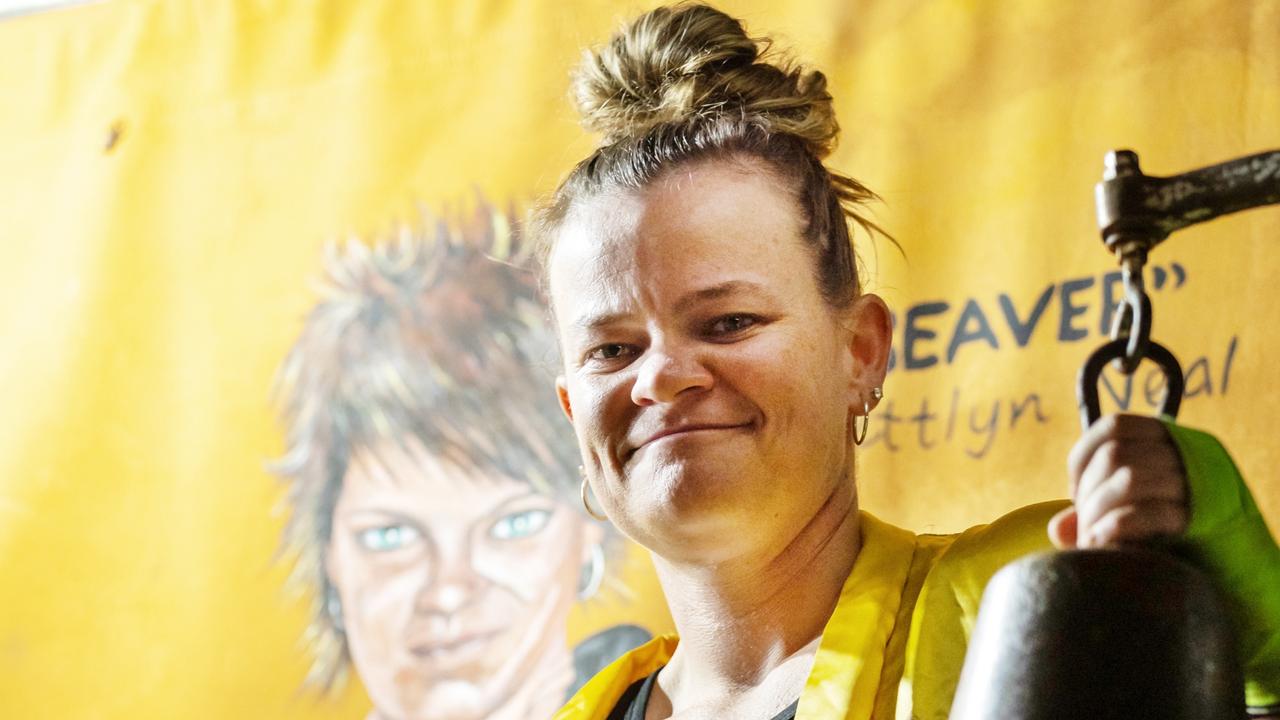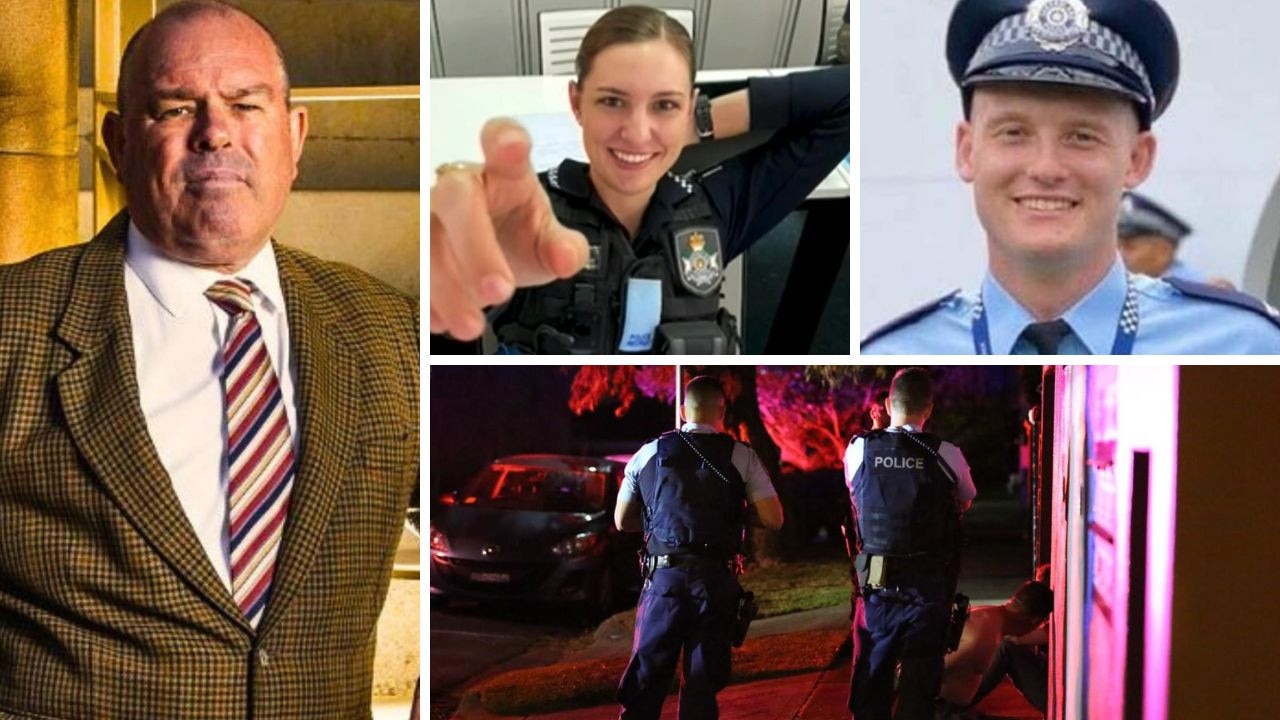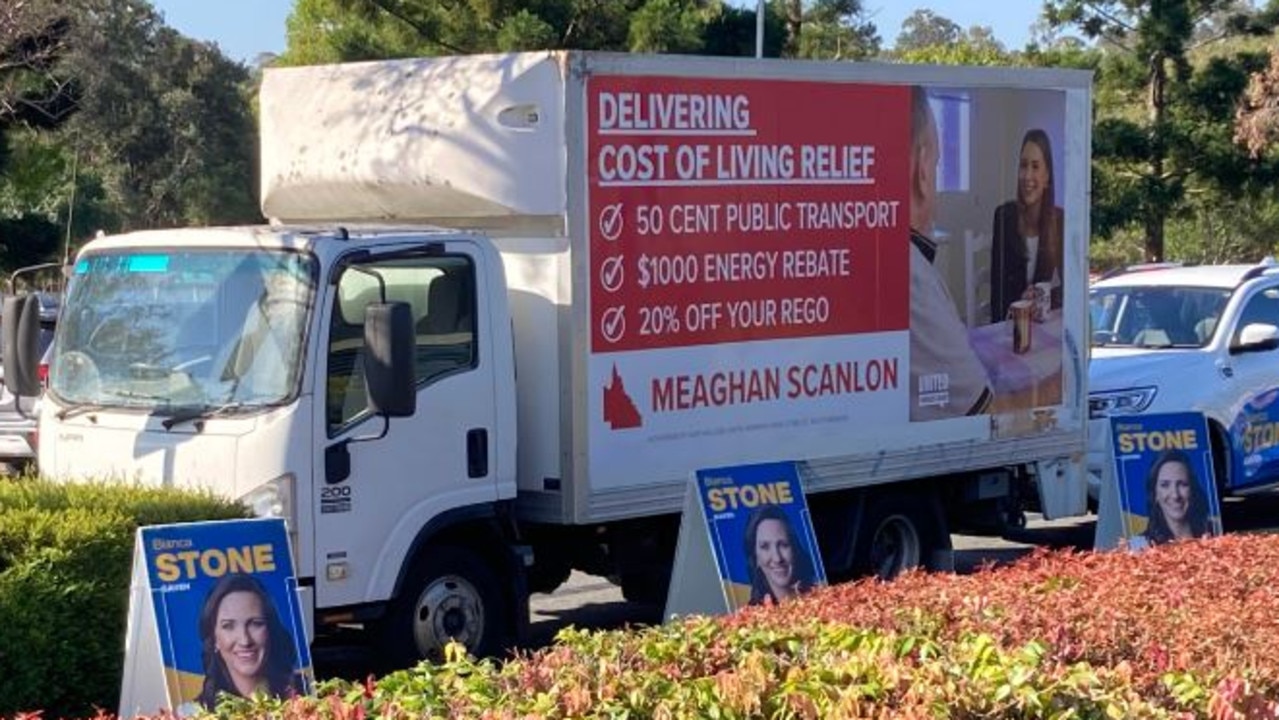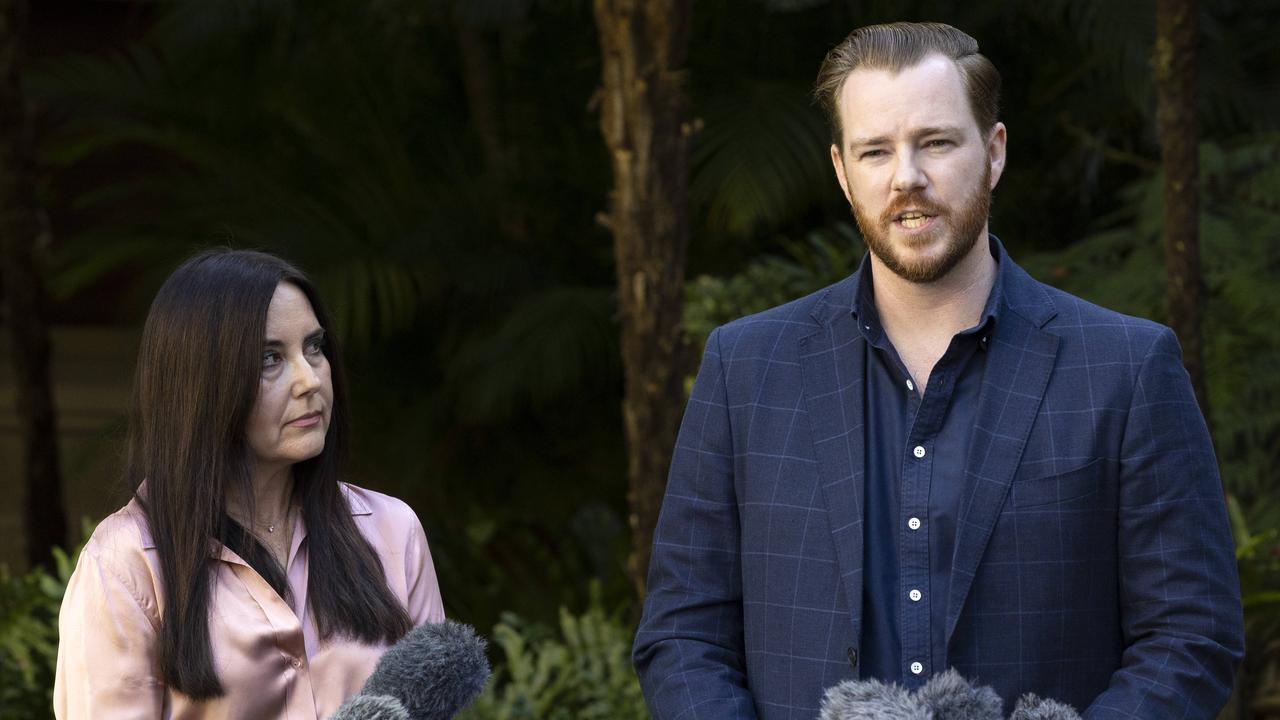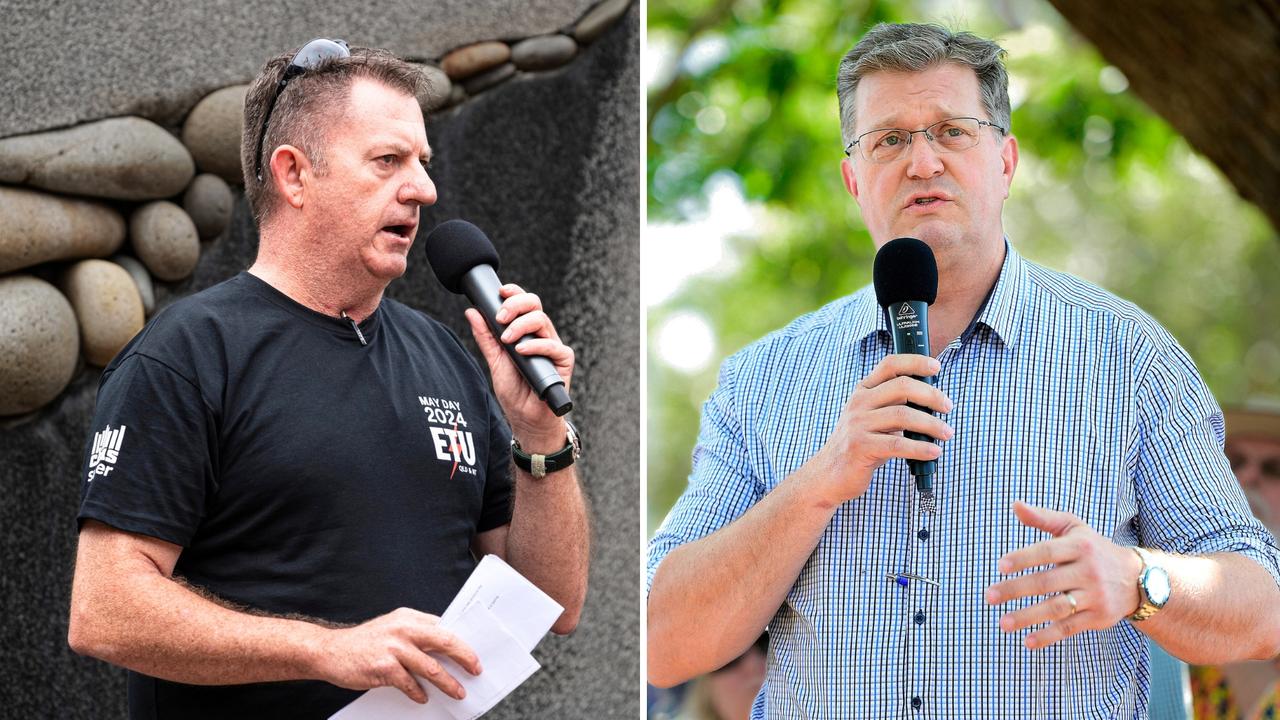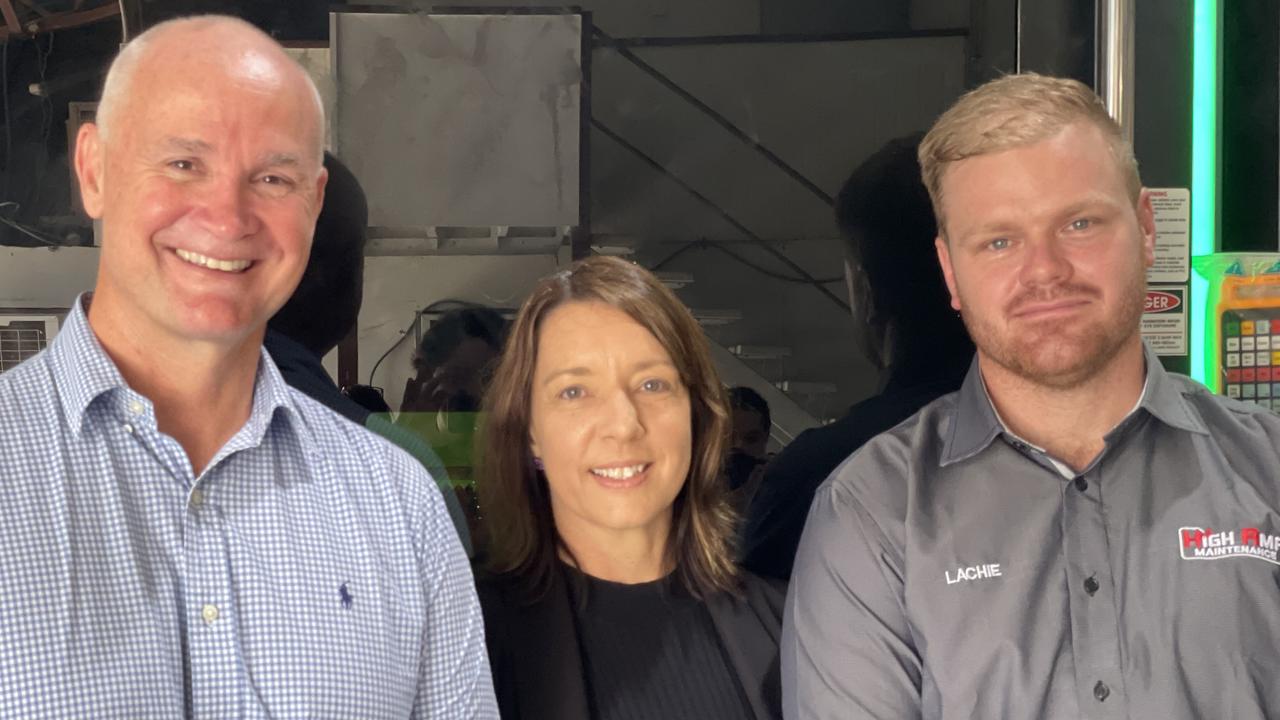‘It’s a more difficult life for women’: Queensland’s female MPs open up about political life
Queensland’s first female MP was forced to eat on the verandah at Parliament. It took almost another 70 years to get women their own bathroom. See what it’s like to be a woman in politics now.
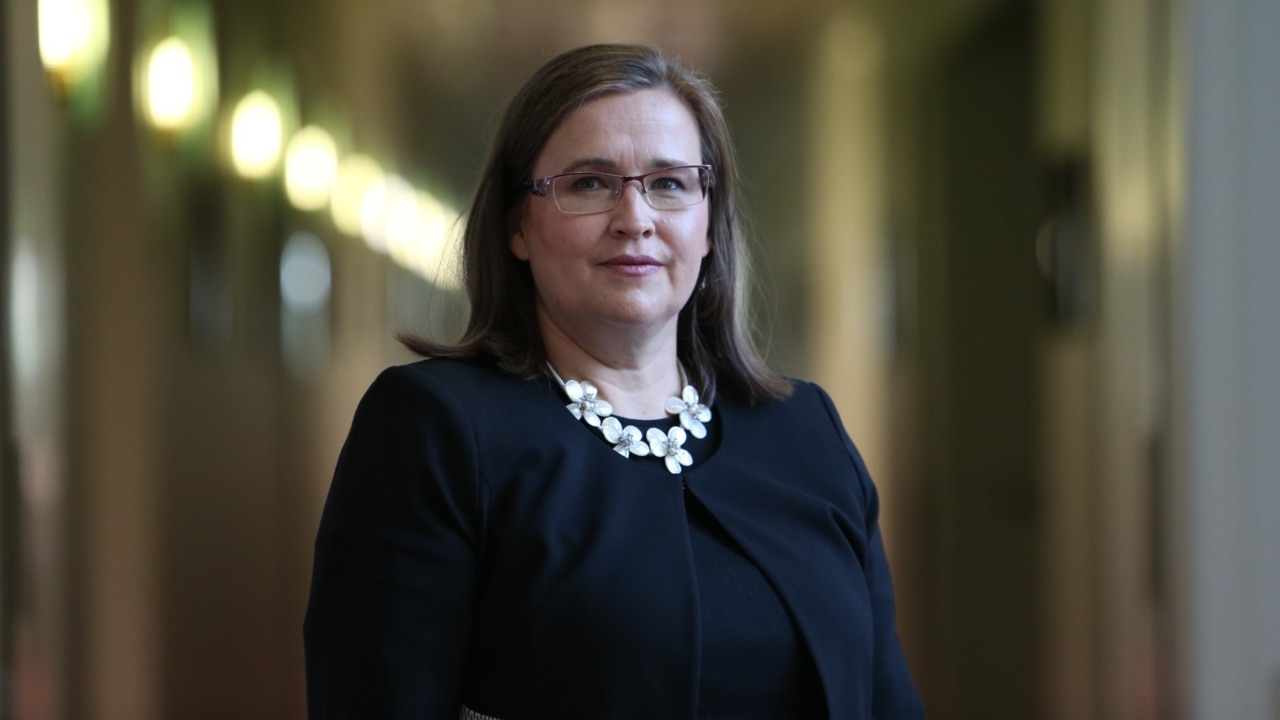
QLD Votes
Don't miss out on the headlines from QLD Votes. Followed categories will be added to My News.
Irene Longman busted through the boys’ club of politics to become the first female elected to Queensland Parliament in 1929. She wouldn’t live to see the day another woman would join her in the history books 37 years later.
Nearly a century on from Longman’s feat Queensland is three MPs away from electing its 100th woman to state parliament. The milestone will more than likely be achieved at the 2024 election.
By the time the 100th woman takes her seat in the chamber, about 1200 men would have been afforded the same honour since Queensland parliament first sat in 1860.
Longman represented the seat of Bulimba until 1932. During her term she was barred from entering the members’ dining room, so she ate her meals on the veranda. There was no dedicated bathroom for her.
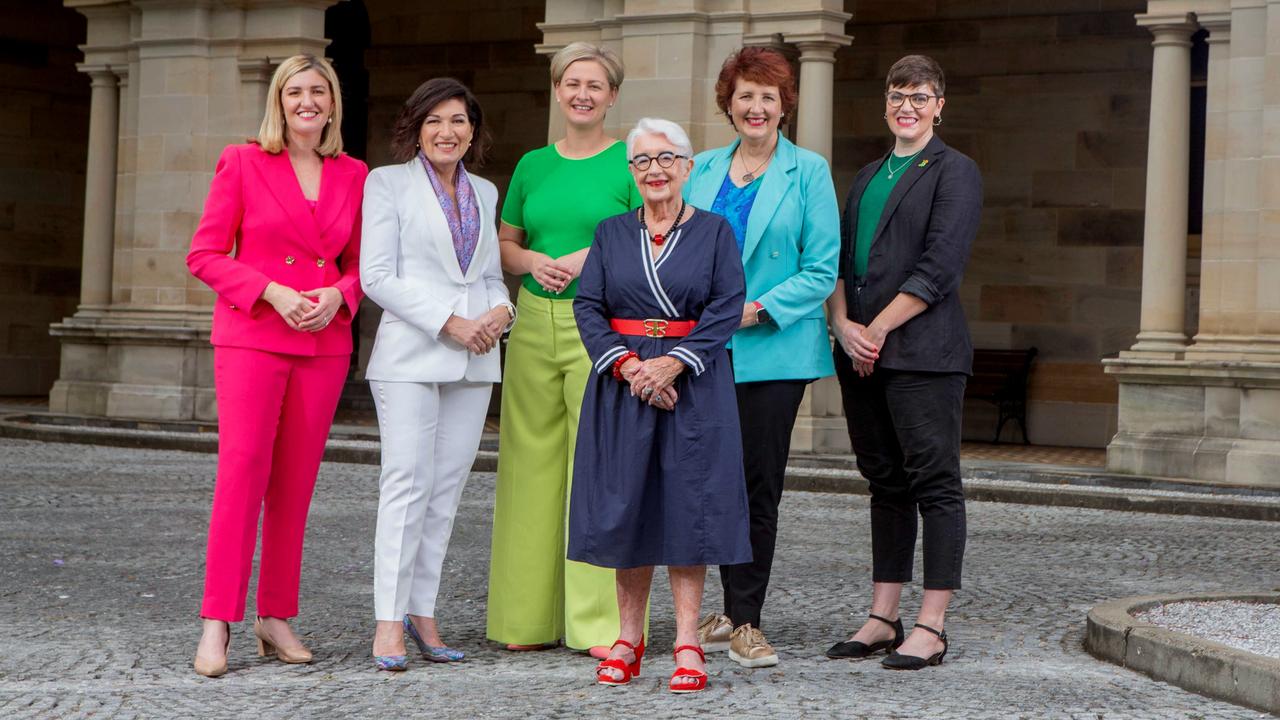
There wouldn’t be one until Joan Sheldon, elected to the seat of Landsborough in 1990, stood her ground and insisted female MPs get their own space, not share the facilities for “visitors”. It was a small victory.
Sheldon would go on to become the first woman to lead a Liberal Party anywhere in Australia, Queensland’s first female deputy premier and first woman treasurer. She admits it was tough.
“It is a more difficult life for women, there’s no doubt about it. But we do need women there,” she says.
“And I think any party these days that doesn’t have that (gender parity) needs to look at why they don’t have it and try and improve the situation where women will want to run and will want to win seats and be in our parliament.”
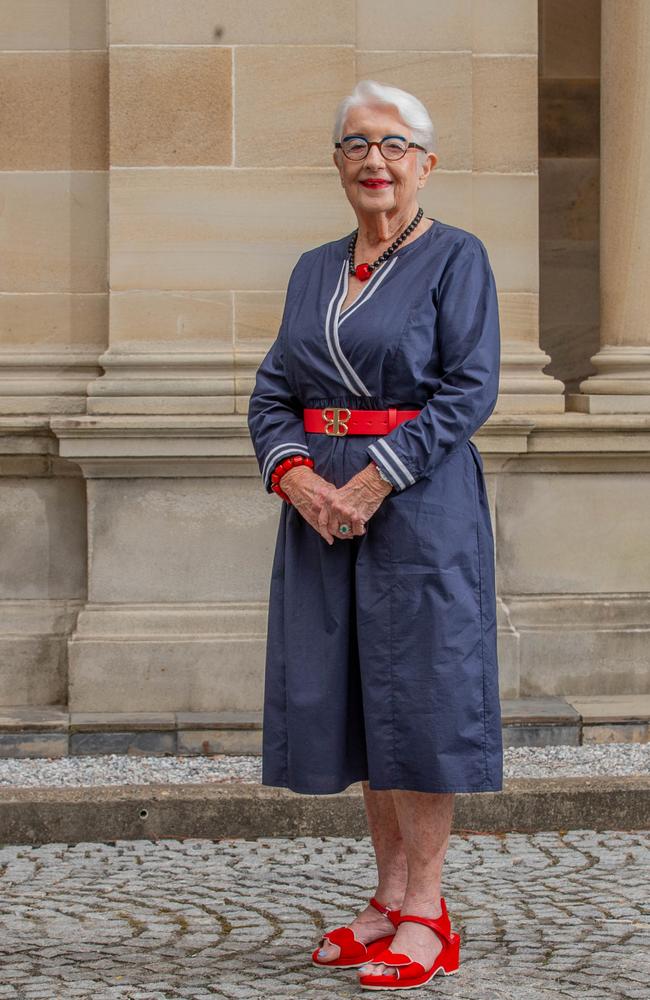
Youth Justice Minister Di Farmer, the second woman to represent Bulimba, says women offer a diversity of opinion and experiences in shaping policy. At the most basic level, parliament should be a reflection of the community.
“Also, they have a right to be there. No one, woman or girl, should wake up any day and think that she can’t do something just because she’s not a bloke,” she says.

Women make up a third of Queensland’s 93 members of parliament, and half of Premier Annastacia Palaszczuk’s cabinet. But the number of women MPs has never surpassed 37 per cent of seats (achieved after Labor’s landslide victory in 2001 under Peter Beattie).
Queensland University of Technology organisational psychologist Professor Vicky Browning says society at large has shifted to be more accepting and supportive of women and recognising the role they can play in politics. But they do still find it difficult to enter the arena.
“For various reasons, some of them financial, some just self-confidence and having the backing and sometimes that’s linked to feeling that they don’t have the skills and knowledge or experience to be able to stand for politics,” she says.
The university’s Pathway to Politics Program, led by Dr Browning, is meant to overcome that. The non-partisan initiative offers 25 spots a year, with funding from QUT, the Trawalla Foundation and donors covering costs including accommodation and travel for participants.
The program was first run out of the University of Melbourne to address the under-representation of women in Australian politics by equipping those with ambitions with the skills they need. QUT’s program, which runs over three weekends, has been running since 2018 and Browning believes there’s a “very good chance” alumna will be elected at the 2024 local government elections.
Labor’s introduction of affirmative action in 1994 set binding targets for the share of women that needed to be preselected in seats the party holds and those in winnable seats (margins of less than five per cent). The party is at 40 per cent at a state level now, and must be at 45 per cent women at the 2024 poll.
It’s the “conservative” side of Queensland politics that has lagged behind Labor in electing women MPs at every state election since 1998.
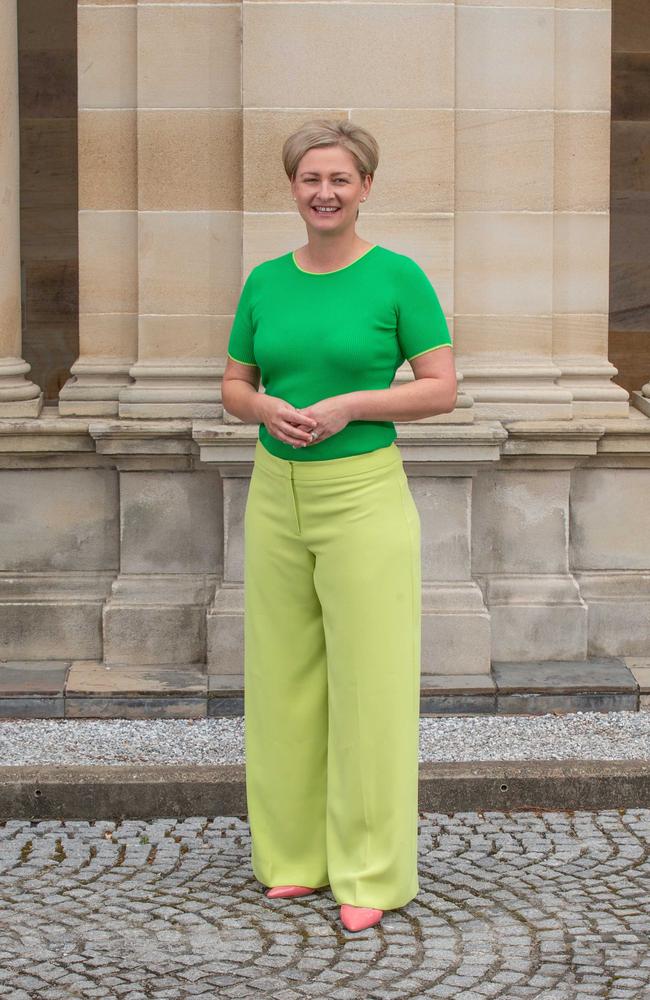
Member for Whitsunday Amanda Camm, the LNP’s most recently elected female MP at the 2020 election, says it’s no secret the party lacked female representation at a state and federal level.
“I certainly do, as a female in the LNP, recognise that we do need more women, and I have many colleagues who also recognise that … and I’m pleased that the party has recognised that,” she says.
“We have had consistently a lack of females being preselected into safe seats as well.”
The LNP has traditionally baulked at the concept of “quotas” to bring in more women, arguing every MP should be elected on their merit. Sheldon isn’t convinced.
“When you look at some of the fellows in there, you’d wonder how they got in if merit was the criteria. And while people want to be elected on their own merit whether it be female or male … you’ve got to have a fair and equal chance,” she says.
And this is the argument which caused Camm to drop her opposition to quotas. She hopes the party’s reform since 2020 has encouraged more women to put their hand up for the LNP but thinks more may need to be done at a federal and state level.
“An introduction of a short-term target, for want of a better word, “quota”, that had an end date on it to bring some balance to ensure that our party is reflective of modern Queensland and of modern Australia,” she says.

Member for Maroochydore Fiona Simpson, the longest-serving female MP of any parliament in the country (she was elected in 1992), doesn’t agree with quotas. She prefers “proactive recruitment” to ensure women are tapped on the shoulder early on and encouraged to have a go.
Sheldon says it’s up to party leaders to make it as “fair as possible for women to go into the parliament”.
But Parliament House by design excludes certain cohorts of women, particularly those with small children. It gets even harder for those outside the southeast corner.
A University of NSW report prepared for the Pathway to Politics program in 2022 warned if parliaments were “unable to reconcile caring responsibilities with democratic duties” women would be disincentivised to run for election or remain in parliament long term.
Sheldon had wanted to build a childcare area on the premises in her time – a facility which still does not exist today, in any state parliament in Australia. It took rules being broken in 2018 by Labor’s Member for Keppel Brittany Lauga for a parents’ room to become a reality on site. It’s tucked away, it has a cot, change tables, some toys, books, a microwave and enough space to fit one or two people with their babies.
Lauga made history when she brought her three-month-old daughter Odette on to the floor of parliament. She breastfed Odette during the swearing in ceremony. The rules considered a baby to be a “stranger” on the floor of parliament, though the Speaker has since moved to allow young children to come in.
But the hurdles remain, especially for primary caregivers based outside of Brisbane.
“If you’re a young woman from regional Queensland considering running for parliament, you’d almost be crazy to do it because it’s so difficult,” Lauga says.
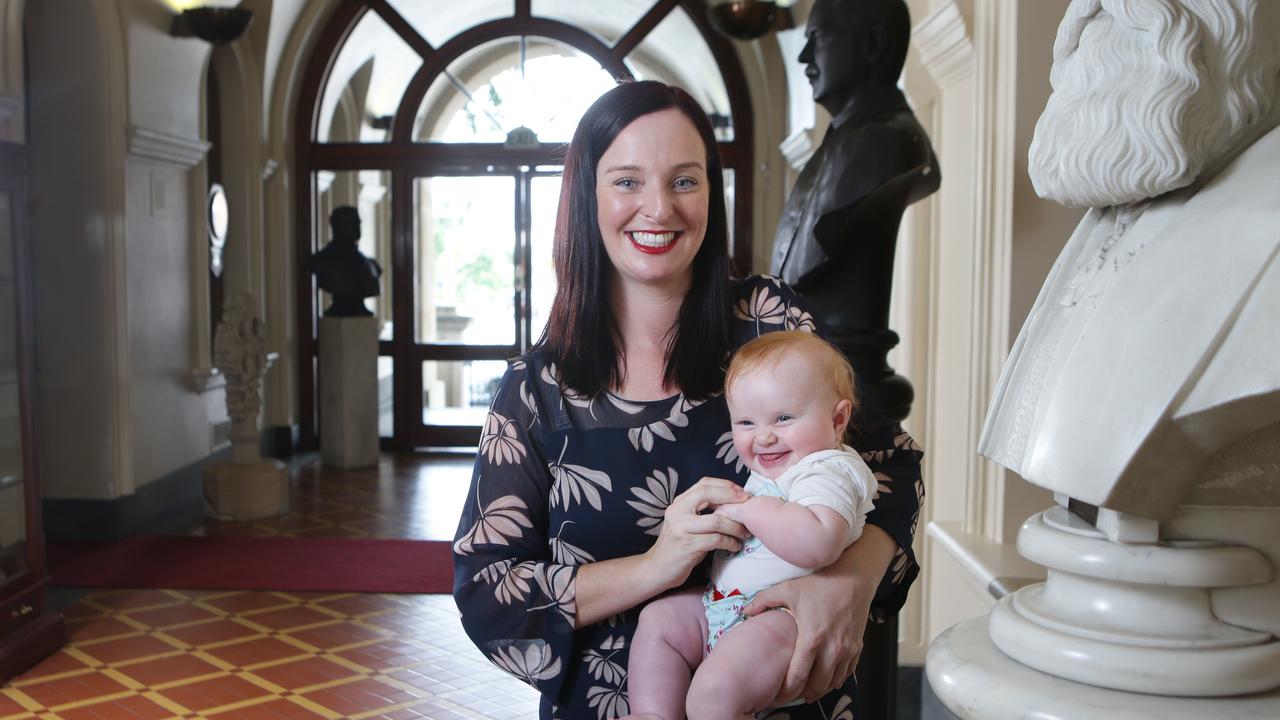
“And so many people then rule it out and we miss out on that cohort of women … it’s a loss for Queenslanders that more young women don’t run for parliament.”
The state government brought in “family-friendly” hours in 2018, sitting until 7.30pm at the latest rather than into the wee hours of the morning. Camm, like most regional MPs, still questions who those hours are family-friendly for.
The job is not without sacrifice. Missing the kids’ birthdays, weeks away from the family, many nights spent in motel rooms alone.
“I met a woman in Townsville who had been an MP … and her advice to me was, ‘Don’t waste a minute’,” Camm says.

“We are in a very privileged position. And you have a platform and resources, and an opportunity to advocate for people and represent them.”
Minister for Women Shannon Fentiman says politics needed to be made more appealing to people from diverse backgrounds, noting aspects of parliament painted the job in a bad light and needed to change.
She took aim at parts that descended into the adversarial or childish, particularly question time, and politicians’ private lives being made very public.
Greens MP Amy MacMahon says it isn’t particularly surprising that parliament continues to be dominated by men considering the barriers women face now and historically, no less the added challenges for women of colour or those who are queer.
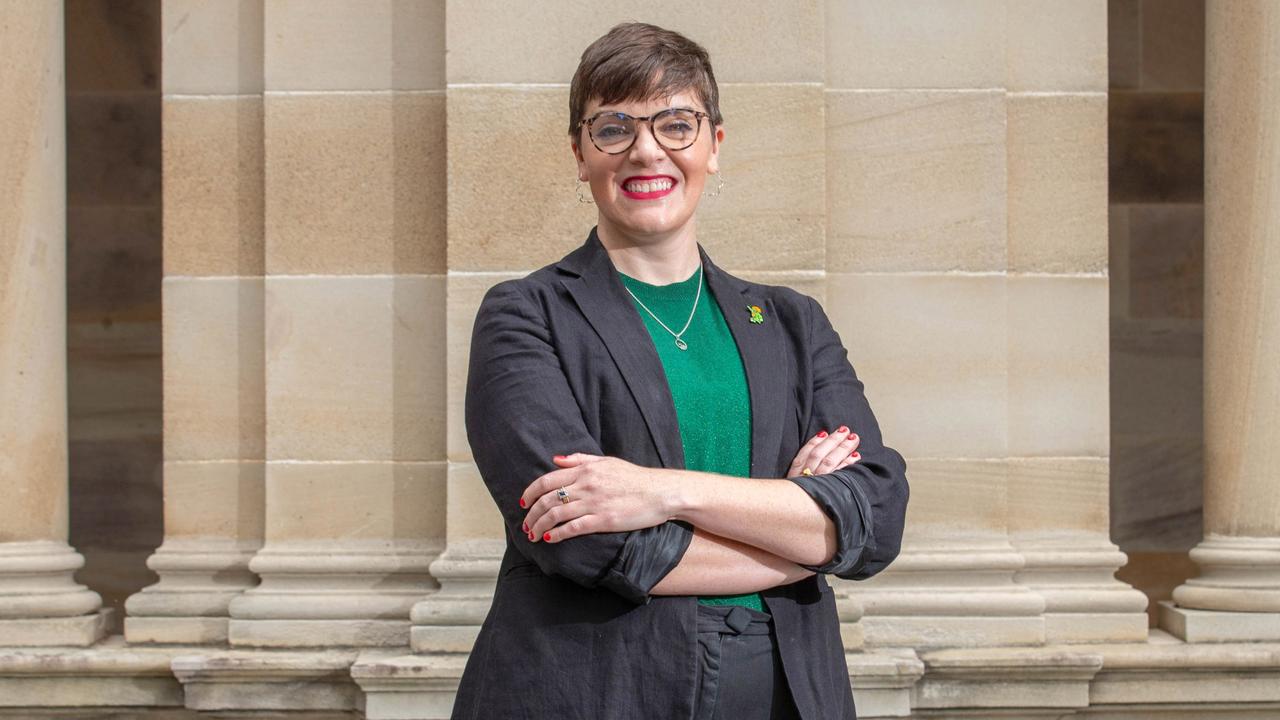
“We’ve got a long way to go to balance it out … but we’ll definitely get there,” she says.
Laws in 1902 which gave women in Queensland the right to vote continued to explicitly disqualify Aboriginal people from doing the same. This disqualification was extended to Torres Strait Islanders in 1930.
Queensland would enact voting rights for Aboriginal people and Torres Strait Islanders at the end of 1965, the last state to do so.
A successful referendum in 1967 led to Aboriginal and Torres Strait Islanders being counted as part of the population while removing references in the constitution which discriminated against them.
Poet and political activist Oodgeroo Noonuccal, then known as Kath Walker, would become the first Aboriginal person to run for a seat in state parliament in 1969. It was the year her great-niece Leeanne Enoch was born. Nearly half a century after Aboriginal and Torres Strait Islanders achieved suffrage in Queensland, Enoch would make history as the first female Indigenous MP when she was elected in 2015.
Member for Cook Cynthia Lui would be the second, and the first Torres Strait Islander elected anywhere in Australia two years later.
“Oodgeroo Noonuccal never lived to see an Aboriginal woman elected. I always think about that,” Enoch says.

“When I got across in 2015, how important it was to so many Aboriginal women. And I think about her, and how she ran in that election, not because she thought she would win but because she wanted to make a point.”
Two generations ago Enoch’s “Aunty Kath” and her grandmother hadn’t been allowed to vote. Her grandfather didn’t live to see the day he could.
“These people were just fighting to actually have a say in this country, and they had fought against incredible, unspeakable discrimination, stuff that you think surely none of us will ever tolerate again,” Enoch says.
“And then two generations later, their granddaughter or great niece is a member of parliament. In a two-generation period, that’s what’s happened.
“If we’re on a trajectory of continuous progression as a state and a people I can only imagine what two generations from now is going to look like … what that’s going to feel like and what kind of state that’s going to bring about as a result of the differences of lived experience and outlooks on life.”
QUT’s Pathways to Politics Program is holding an event called “Q100” on October 9 to celebrate the countdown to Queensland’s 100th elected woman. More than 50 of the 97 current and former female MPs are expected to attend along with relatives of those that have died.
More Coverage
Originally published as ‘It’s a more difficult life for women’: Queensland’s female MPs open up about political life




